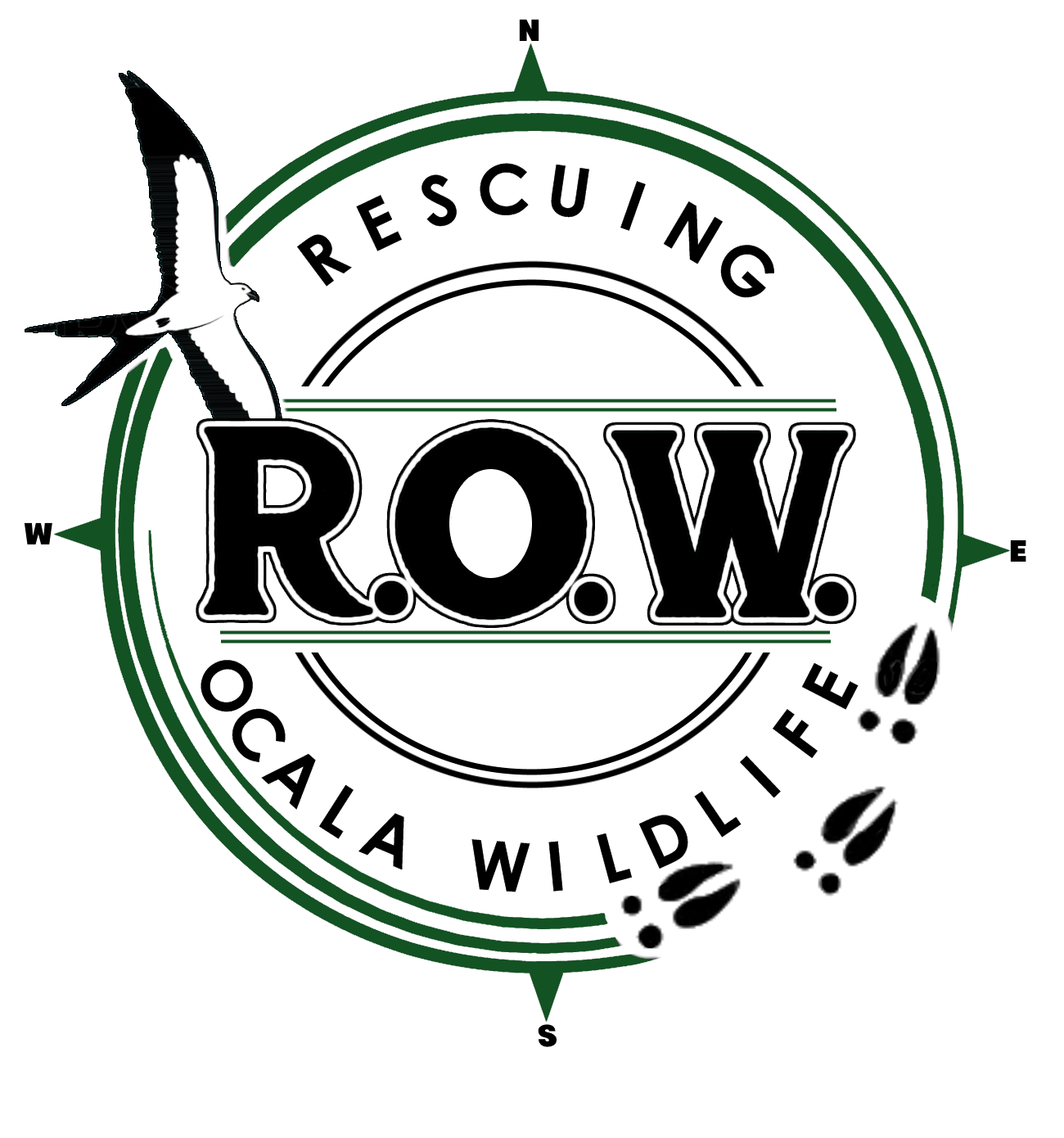General FAQs
-
What are your hours?
We are open 9am-4pm Monday-Saturday and are closed on Sundays. Please check our social media for updated holiday hours.
-
Where do I bring found wildlife?
If you have found a wild animal, please text us a photo of it to 352-234-6098 and include some background on where and when you found it and your location.
We may ask you to bring it to us, one of our rehab partners, or veterinarians. PLEASE DO NOT FEED ANY FOUND WILDLIFE.
-
What kind of animals do you take?
We rescue small mammals, birds, and reptiles (not including alligators or venomous snakes). We do not trap or relocate any nuisance wildlife or rehome exotic animals. We also do not accept domestic animals like dogs/cats, or livestock.
-
What happens to an animal after I drop it off?
Injured, sick, or orphaned wildlife will be assessed by our team as we determine the best next steps. Many animals in our care require visits to the vet for diagnostics, imaging, and prescription medication. Others, such as healthy orphans, will remain at our facility for care until they are old enough to be released.
-
Can I get updates on the animal I found?
Our ability to give updates depends entirely upon how much time we have to do so. Peak "baby season" is from March-October, and there are times that we receive over a hundred messages a day about animals needing help. Messages are answered in order of urgency, and the best chance of seeing an update on the animal you brought in is by visiting our Facebook page.
-
Are you open to the public?
While we are not currently open to the public, we hope to be In the future. We broke ground on our wildlife hospital in South Ocala in June 2024, and hope to offer on-site educational opportunities and visits in the near future. For now, only volunteers are allowed.
-
How can I help your organization?
You can help our organization in several ways!
Either through a tax-deductible monetary donation, by visiting our Amazon Wishlist and donating supplies, by signing up to volunteer, or by sharing our mission with your friends on social media!
WILDLIFE FAQs
-
If I handle a baby animal will its mother still come back for it?
Yes, the mother will still return for her babies even if it has "human scent" on it; however, you should never handle any wildlife unless absolutely necessary! If you have found orphaned wildlife, please read the chart below to determine if it can be safely "re-nested", or give us a call if you are unsure.
-
What is "native" vs "invasive" wildlife?
Native wildlife is categorized as living in the region before European colonization, beginning in the late 16th century. Examples include white-tailed deer, bluejays, and snapping turtles. Non-native, or invasive, wildlife has been introduced to this region either purposefully or by accident. Examples include the European starling, the Cane toad, and the Burmese python.
-
Does seeing a "nocturnal" animal during the daytime mean it has rabies?
Not necessarily. Nursing mothers who require more calories in order to produce enough milk to feed their babies may be seen during the daytime. Never approach any wildlife that you fear may be sick, and observe for normal behavior from a distance.
-
A turtle was crossing the road, but there was no water nearby...should I bring it to a lake?
No, never remove a turtle from its territory! If you see a turtle or tortoise crossing the road, please help it safely across the street in the direction it is heading. It may not make sense to us where it is going, but the turtle has a destination in mind! Moving turtles/tortoises out of their territory can transmit diseases to other populations or cause them to wander back hundreds of miles to their original home. During this time, they can become exhausted and disoriented.
-
How can I keep animals from digging holes in my lawn?
Limiting food, water, and shelter sources may help reduce wildlife from visiting your yard and digging holes. Pet food, bird seed, fruit trees, or gardens attract visiting animals, bird baths, water bowls or other types of standing water. Reducing these and things we may not see as shelters, like piles of firewood, tarps, or anything not moved regularly could cut back on nuisance wildlife.
Still have questions? Text us at 352-234-6098





